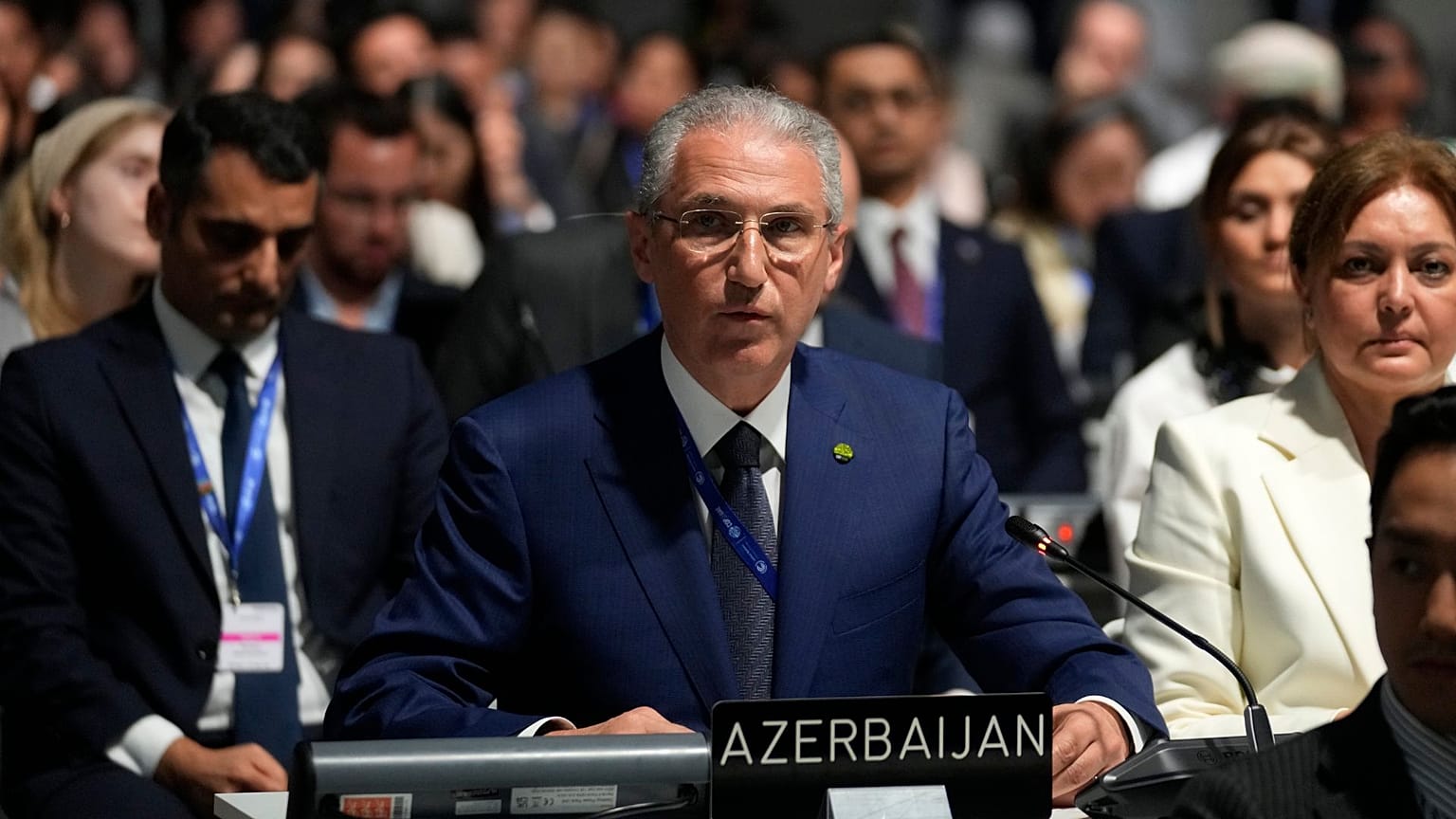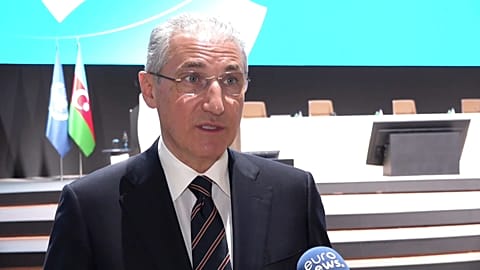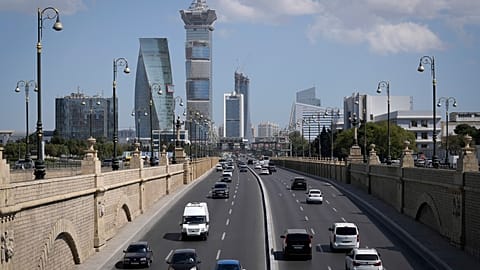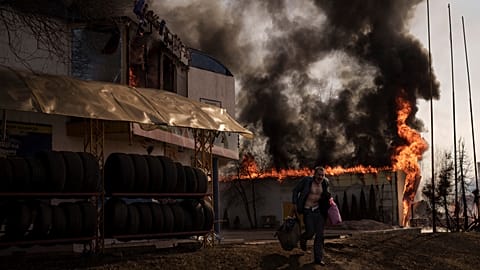Concerns are multiplying over COP29 host and petrostate Azerbaijan.
Azerbaijan's ecology minister has been named to lead the United Nations' annual climate talks later this year.
 ADVERTISEMENT
ADVERTISEMENT
 ADVERTISEMENT
ADVERTISEMENT
Some climate activists have raised concerns over his former ties to the state oil company in a major oil-producing nation.
Mukhtar Babayev's appointment was announced by the United Arab Emirates, which hosted COP28 in December, and confirmed on Friday by the United Nations.
Officials in Azerbaijan did not immediately respond to messages seeking to confirm the COP29 appointment.
Oil and gas bring 90% of Azerbaijan's export revenues
Babayev, 56, has been his country's minister for ecology and natural resources since 2018. Before that, he worked at Azerbaijan's state oil company for more than two decades.
Oil and natural gas bring in around 90 per cent of Azerbaijan’s export revenues and finance around 60 per cent of the government budget, according to the International Energy Agency.
Climate activists say the country needs to look past its own fossil fuel interests if it's going to host successful talks.
Mohamad Adow of climate think tank Power Shift Africa says it’s "concerning to be once again having the world’s climate negotiations coordinated by a petrostate that has a big interest in oil and gas production," following COP28 in Dubai last year.
Harjeet Singh, global engagement director for the Fossil Fuel Non-Proliferation Treaty Initiative, adds that "with another petrostate hosting the climate conference, our concerns multiply."
Babayev "must transcend the vested interests of the powerful fossil fuel industry that is primarily responsible for the climate crisis," says Singh.
Critics draw parallels with COP28 president Sultan al-Jaber
Similar concerns dogged Sultan al-Jaber, the head of the UAE's national oil company, as he presided over the talks in Dubai.
The COP president is responsible for running talks and getting nearly 200 countries to agree on a deal to help limit global warming, and skeptics questioned whether al-Jaber would be willing to confront the fossil fuels causing climate change.
The conference ultimately resulted in a final agreement that for the first time mentioned fossil fuels as the cause of climate change and acknowledged the need to transition away from them, but it had no concrete requirements to do so.
Adow is hopeful that climate negotiators could be successful in Azerbaijan’s capital Baku as “the COP in Dubai resulted in an outcome more positive than many expected."
"[Babayev has] got a huge job to do," says Adow. "He needs to start working on getting rich countries to deliver serious, long-term finance that will tackle the climate crisis."
'Stakes will be high' in Azerbaijan
Without commenting directly on Babayev, Melanie Robinson, global director for the climate program at World Resources Institute, says “stakes will be high” in Azerbaijan. Nations will tackle issues including how to finance climate change adaptation and mitigation around the world, particularly in poorer countries.
“As with all presidencies, the world will be looking to Azerbaijan to fairly facilitate the most ambitious outcome possible,” she says.
The United Nations moves the talks around the world with different regions taking turns. They're typically announced two years in advance, but the decision to hold 2024 talks in Azerbaijan came just 11 months before the negotiations are supposed to start.
That was due to a longtime standoff between Eastern European nations, the region designated to host in 2024. A prisoner swap between Azerbaijan and Armenia in early December led to Armenia supporting Azerbaijan's COP29 bid.
Azerbaijan plans to increase fossil fuel production by a third
An analysis shared exclusively today with UK newspaper the Guardian reveals Azerbaijan plans to increase its fossil fuel production by over a third in the next decade - a major blow to those feeling hopeful about COP29.
To limit global warming, the world needs to cut fossil fuel production rapidly in the coming years. But the country's annual gas production is projected to rise from an estimated 37 billion cubic meters this year to 49 bcm by 2023.
The data, sourced by the campaign group Global Witness from analysts at Rystad Energy, is based on an analysis of Azerbaijan’s current gas production, its reserves approved for development, and reserves that have have been assessed by oil and gas companies but are yet to receive clearance.
Further gas reserves could be confirmed by drilling in the next 10 years, meaning the forecast could be conservative.

















